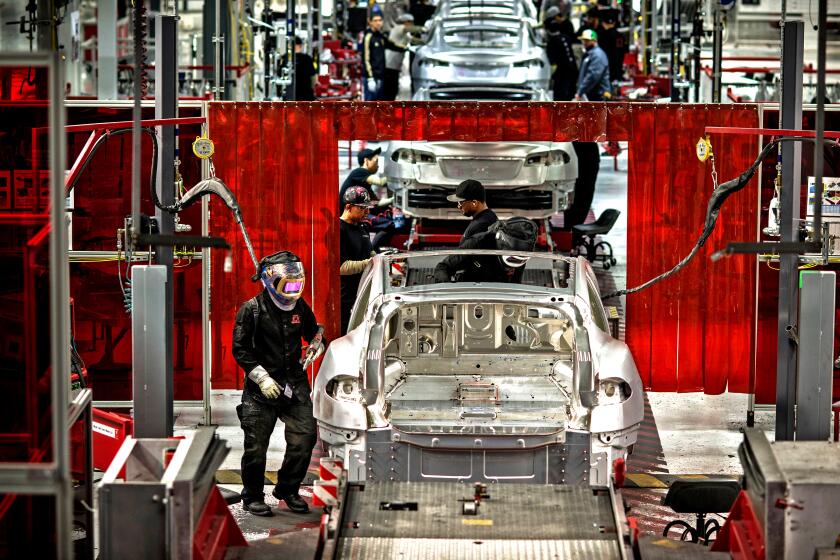Fired U.S. Mitsubishi Managers File Suit
A Mitsubishi plant in Illinois is once again the target of a discrimination lawsuit, this one accusing the auto manufacturer of unfairly firing older managers who were not Japanese.
It is at least the third discrimination suit against the company’s facility in Normal, Ill. Last month, 250 African American and Latino workers won up to $200,000 each in the settlement of a lawsuit that charged Mitsubishi with allowing racial harassment and a hostile environment at the plant.
And in what is believed to be one of the biggest such settlements, the Japanese company paid $34 million three years ago to more than 300 women who claimed that they had been sexually harassed for years and that supervisors had done nothing to stop the groping and lewd conduct at the plant.
The latest lawsuit was filed Wednesday by five managers over age 50 who lost their jobs in 1999 in a round of layoffs that they claim were biased against older workers and non-Japanese. Of 111 nonunion workers laid off, 87 were over 40, the suit says.
The Equal Employment Opportunity Commission investigated the complaints and deemed the disproportionate number of older workers laid off to be enough evidence to permit a lawsuit to be filed.
The agency did not make a finding regarding the complaint of national origin discrimination. The managers based that charge on their assertion that a manager of Japanese ancestry, who was 68 at the time, was not laid off.
The plaintiffs are seeking back pay and unspecified punitive damages.
A Mitsubishi spokesman declined to comment on the lawsuit, but the company issued a statement saying it stood behind the 1999 layoffs, part of what it described as a plan to reduce its work force by 18%.
“While it is always difficult to make work force reductions, a strategy was developed and implemented with a focus on treating the impacted people as fairly and sensitively as possible,” Mitsubishi’s statement said.
Experts say it is unclear why the Normal plant has been the target of separate sex, race and age discrimination suits. The later suits may have been triggered by the increased awareness of bias created by the high profile of the sexual harassment case, said Nancy Kreiter, a member of the court-approved committee assigned to monitor the settlement of the sex discrimination suit.
“In these large, very public cases and settlements, once a company is seen as vulnerable on one point, then it ignites other employees to look at their situations,” said Kreiter, research director for Women Employed, an advocacy organization in Chicago.
The Normal plant also is known for its experiment with the Japanese “lean management” model. Workers were placed on teams and were to be involved in many production decisions, said David Lewin, who holds UCLA’s Neil H. Jacoby Chair in Management and is an editor of an industrial relations journal that published a study of the program titled “From High Hopes to Disillusionment, the Evolution of Worker Attitudes at Mitsubishi Motors.”
Worker attitudes soured after the model was implemented, according to surveys conducted at the plant between 1989 and 1997. Lewin said the Japanese management program fell apart after unionized workers complained that managers made changes without consulting them and took advantage of them.
Between the surveys and the lawsuits, Lewin said, “they’ve had lots of evidence that they are running afoul of most major employee groups.”
What’s unclear, he said, is why.
“You can certainly make the case that they have not learned from their mistakes,” Lewin said. “It can have something to do with the fact that it’s a company that’s owned by Japanese. And they are operating outside of their own immediate turf and therefore may not quite comprehend not just the laws but what those laws are based on.
“Although after you get beat over the head once or twice, you ought to probably learn,” he said.
Not all Japanese companies doing business in the United States have such problems, said Marvin Lieberman, an associate professor at UCLA’s Anderson business school and an expert on manufacturing productivity and the auto industry.
“For the Japanese, it has often been difficult, but some of the firms have figured it out quite effectively,” Lieberman said. “Look at Toyota. Toyota has been quite sensitive to the need to enlist the America labor force.”







